The Top 100 Mandopop Albums of the '10s
the best albums of the decade, from intimate folk music to smooth R&B, and vibrant dance-pop to rousing guitar rock
It’s undeniable that Mandopop evolved over the course of the ‘10s, with scenes like Taiwanese dance-pop shifting from the harsh and glitchy electropop of Da Mouth to the glossy, thumping electro house of NekoJam, while others like Chinese rap found themselves suddenly in the spotlight of the mainstream, as it ballooned from J-Fever’s freestyle, conscious hip-hop to Ty.’s party cuts. Throughout the decade, Taiwanese mainstream acts attempted to reproduce the all-consuming romanticism of their predecessors, while Chinese indie artists attempted to escape the insularity of theirs. From hushed, intimate folk music to the increasingly pervasive smooth R&B, from vibrant dance-pop to rousing guitar rock, these are the top 100 Mandopop albums of the ‘10s.
I wrote this list as an attempt to create a starting point into Mandopop in the ‘10s over anything else since all the lists I’ve seen have felt exceedingly narrow. One thing I wanted was for this list to be accessible, so only albums widely available on streaming were picked1 (with links provided below), and I tried to capture a more all-encompassing point of view than less of a simple reflection of my own personal taste, something that hopefully comes through the list.
You’ll probably notice that the list is skewed in favour of albums in the later half of the decade. That’s partly due to me being more invested in Mandopop in the later parts of the decade, but also partly because Mandopop expanded to be more diverse then, thanks largely to the globalization of music. You’ll start to see the explosion of different sounds throughout the genre in the later half of the decade and I wanted this list to reflect that diversity. Thanks for reading!
Skip ahead to top 50 here. Find a playlist with highlights on Spotify and Youtube, or check out the text list here.
100. Mayday - History of Tomorrow (2016)
Two decades after forming in high school, Mayday’s ninth album suggests something of a premature farewell in its collection of parting conclusions. Vocalist Ashin sings like he’s on his final encore, bringing an embarrassing yet earnest sincerity to phrases like “if we had never met, where would I be?” and “the future says the best day still has yet to take the stage.” As he erupts into bar sing-along choruses and drunkenly sappy speeches, the Taiwanese pop-rock band are propulsive, flaunting tricks like a big band ensemble and an electronic party anthem. Bright, forceful, and packed with boyish sentiment, there’s an uncompromising remnant of their younger selves in the reminiscence of History of Tomorrow.
Listen here: Apple Music // Spotify // Youtube
99. Good Meimei - 南北 (2013)
Qin Hao and Zhang Xiaohou quit the corporate lifestyle to self-produce their back-to-basics debut album, 春生 (Spring Life). Rich with playful folk-pop instrumentation and temperate melodies, the duo brought the uncomplicated lifestyle of the southern countryside to Beijing. Yet more intricate embellishments pervade their second album, 南北 (North and South), with trails of metropolitan guitar and airs of traditional strings as they migrate with the ocean breeze and watch aimless faces blur amidst the city. Good Meimei come to embrace that impermanence, their gentle harmonies the only constant as they wistfully recall the past and unhurriedly flit across the urban-rural divide.
Listen here: Apple Music // Spotify // Youtube
98. Jia Jia - Alone the Way (2013)
Alone the Way conjures the image of a rest stop diner, the kind where nothing ever happens and whose patrons are all bleary-eyed wanderers. Yet Jia Jia seems to recognize something in you worth conversation: “your loneliness is singing,” she calls. Her voice has often been likened to Adele for its rich, sonorous tone and that slightly rough edge, but she leaves room for another in the spacious instrumental. Jia Jia’s uncle Purdur and sister Samingad have pulled from their native Puyuma tradition in their music but Alone the Way uses familiarity and restraint to minimize distance; she keeps its jazzy get-togethers, funk detours, and reggae trysts light as she threads compassion through the ordinary magic of its pop-soul.
Listen here: Apple Music // Spotify // Youtube
97. MJ116 - DON (2019)
Rap was first introduced to Taiwan’s mainstream in the ‘90s by L.A. Boyz, a trio of Taiwanese-Americans raised in California who would energetically bounce atop a variety of dance-pop. It’s a full circle moment to hear MJ116, the trio who would become rap’s new vanguard, reference L.A. Boyz’s new jack swing-indebted “Jump” on “走跳” (“Walk and Jump”) almost three decades later, adapting its chorus to a trap beat and mutating their enthusiasm into imposing demeanour. DON is a towering yet concise summation of MJ116—E.SO, Kenzy, and MUTA—the trio rapping aggressive over its West Coast hip-hop beats. Each would embark on solo careers at the start of the new decade but DON closes out on a celebratory vibe, a breezy victory lap for rap’s new trio.
Listen here: Apple Music // Spotify // Youtube
96. Fu Yi - Only Beauty Shall Be Seen (2018)
“Life is hard work, my friend,” Fu Yi sings in a hushed whisper, “life is beauty, myself.” The only lyrics the Chinese folk singer wrote for his debut album, Only Beauty Shall Be Seen, were in awkwardly-phrased English, unspecific yet evocative of a deep admiration beneath the hardship. The rest—written by singer-songwriter Tang Yingfeng and lyricist Yizhiran—are poetic interpretations of wild landscapes, built off the gentle, morning light that runs off his probing melodies. Fu pairs his calm, breathy voice with serenely intimately finger-picked guitar; he’s a simple-minded student in awe of undefinable beauty.
Listen here: Apple Music // Spotify // Youtube
95. Da Mouth - [‘influəns] (2012)
Da Mouth—comprised of vocalists Aisa Senda and Harry Chang, rapper MC40, and DJ Chung Hua—were initially a smooth pop rap quartet before they went by route of THE E.N.D., funnelling everything through sleek retrofuturism. Overblown bass and plinky keys, glittery synthpop and stuttered vocal takes—Da Mouth’s garish electroclash was a failed prediction of the sound of the future but their whole-hearted sincerity countered its boisterousness as they reproduced the sweetness of ‘00s pop vocal melodies. Ten years on, [‘influəns] sounds harshly dated but its saccharine social feed remains a beautiful relic of the ‘10s.
Listen here: Apple Music // Spotify // Youtube
94. Fish Leong - The Sun Also Rises (2019)
“Loving you isn’t just two or three days,” Fish Leong twittered on one of her biggest hits, “every day without you, I miss you so many times.” But on The Sun Also Rises, she likens love to fireflies: radiant yet fleeting. Leong announced her divorce during the press for her thirteenth album, sparing no love as she labelled her ex-husband as nothing more than “her son’s father.” The Malaysian singer seeks to rediscover herself and recapture that former optimism for love across its rustic ballads. Occasionally, she falters, dwelling on that one-sided relationship, but Leong’s wiser here, affectionately insisting on loving herself if he won’t.
Listen here: Apple Music // Spotify // Youtube
93. Zulin Wu - 野餐 (2014)
Zulin Wu, the youngest son of Taiwanese poet Wu Sheng and vocalist of the folk-rock band 929, sets his father’s poetry to spare folk songs on 野餐 (Picnic). Wu Sheng’s warm and pastoral writing lacks ornate exhibition, using simple yet vivid imagery to illustrate: “not an idle outing nor a luxurious feast / just a small pot of porridge and some pickled vegetables,” he writes, recalling his modest upbringing and his mother’s labour. Zulin Wu’s compositions are just as simple, with his spindly acoustic guitar melodies only adorned by violin and piano in displays of community. He endures the labour of the field and the harshness of the seasons, commemorating his late grandmother by embracing his father’s profound reverence for rural life.
Listen here: Apple Music // Spotify // Youtube
92. 9m88 - Beyond Mediocrity (2019)
Ahead of Asia’s most recent retro revival, 9m88 imbued the jazz fusion of her debut album with stylings of neo-soul, funk, city pop, and more. Beyond Mediocrity is best when she rears her head in a dynamic yowl and gets aggressive with those retro influences: the overpowering new jack swing transforms nostalgic romance into a thrill on “Love Rain,” “Airplane Mode” finds her matching Leo Wang’s offbeat personality with an equally quirky charisma over jazz collage, and YELLOW’s slow-burning production on “Nine-Headed Hinano” is a simmering delight about aging without expectations. Stuffed with eccentric charm and freeform lustre, Beyond Mediocrity curbs all pre-conceived limits.
Listen here: Apple Music // Bandcamp // Spotify // Youtube
91. Wakin Chau - Diva (2011)
Teresa Teng practically had to restrain her heart from chirping as she sang “甜蜜蜜” (“Very Sweet”) amidst dancing strings and trills but Wakin Chau’s cover comes with a more mournful tune. It’s impossible to replicate Teng’s sweetness so Chau doesn’t try, instead, singing a springtime farewell in a moving tribute to one of his idols. Diva is a collection of covers of Chau’s favourite female singers across decades, from Zhou Xuan’s 1937 classic “Song Bird” to a-mei’s 2006 “Hostage.” His voice is rough yet tender, a hearty focal point that fills each performance with deep admiration; hear the way the budding instrumentals seem to sing back to him, feel the audience fall silent as he howls through a live cover of Winnie Hsin’s “Understanding.”
Listen here: Apple Music // Spotify // Youtube
90. Eric Chou - The Chaos After You (2017)
There’s a paradoxical trope in romantic dramas of “we broke up out of love.” It’s an act of cowardice hidden behind the false perception of selflessness, putting insecurities ahead of another’s feelings. Eric Chou, Taiwan’s new lovelorn balladeer, sings with that temperament. Adoring yet bashful, his voice possesses an innocent sophistication that’s helped make him a popular choice for drama soundtracks. Emotive ending credit themes line The Chaos After You’s electronic ballads: piano melodies buoy with familiar pining, but an electric violin becomes the perfect vehicle for tragic heartache as it slices through the hazy atmosphere. Promising devotion to compensate for his lateness, Chou’s the perfect protagonist as he begs for one last chance in the moonlit downpour.
Listen here: Apple Music // Spotify // Youtube
89. Kafe.Hu - Fame/Fake (2018)
On his breakout album, Kafreeman, Kafe.Hu rapped about the experience of becoming a new father over live jazz instrumentation—impressive to Chinese audiences who had yet to fully accept rap as its own art form. His follow-up, Fame/Fake, features bluesy electronic production from SoulSpeak, with hints of funk, rock, reggae, and even the wonky atmosphere of the eccentric Chinese singer and producer Fishdoll. “Am I famous?” Kafe.Hu menacingly questions on the title track, answered by vocalist Credit Card with a sinister whisper: “you so fake.” As contemplative as it is playful, Kafe.Hu’s gleeful excavation of the pretentious spirals inward as Credit Card comes to play his innermost doubts.
Listen here: Apple Music // Spotify // Youtube
88. Frandé - 隨波逐流我不介意 (2013)
Fran’s voice possesses this girlish quality as she romanticizes being twenty-one, confused, and loving someone more than they could love themselves. The vocalist of Frandé gives everything to blind adoration on 隨波逐流我不介意 (Drifting in a Wave, I Don’t Mind), her emotions clear even under the veil of her band’s nocturnal dream pop. Infatuation is in the gentle pop of colours and mystifying swirl of gauzy guitars and electronic textures, yet Fran’s voice blooms in the dark, so full of love that it soothes through the emptiness of a relationship in need of end. In her soft lilt, she makes devoting yourself to another sound sweetly enticing.
Listen here: Apple Music // Spotify // Youtube
87. Li Ronghao - Model (2013)
There are no grand ambitions to Model, Li Ronghao’s debut album, which comes almost a decade after getting his start as a songwriter to help his mother with hospital debts left after his father passed away from leukemia. Instead, there’s a deep sense of humility in Li’s work as he describes feeling out of place in fancy costumes and craves for nothing more than closeness. Grand flourishes of strings, piano, and drums stage the Chinese singer-songwriter’s reserved guitar melodies and mellow voice, but Model is a measured performance of modest dreams, the greatest of which is to simply grow old beautifully with another.
Listen here: Apple Music // Spotify // Youtube
86. Cyndi Wang - CYNDILOVES2SING (2018)
Still the sweetheart of Taiwan, Cyndi Wang reconciles mature femininity with her captivating likability in the literary worldview of CYNDILOVES2SING. Each track takes its name from a famous novel—the Sandee Chan-penned opener takes its name from French novelist Patrick Modiano’s Dans le café de la jeunesse perdue and comes to a similar realization: “the most painful feelings are like the deepest lies / love isn’t necessarily true.” Wang contends with the bitterness of heartbreak but her dance-pop keeps the same sweet affability, adapting a nursery rhyme for confused anguish and celebrating love over transformative house piano stabs. On the bouncy tropical house closer, she tenderly offers a counter to that former pessimism that’s equally as striking: “I believe love has its own arrangement,” she sings, decisively captivated at the centre of its celebration.
Listen here: Apple Music // Spotify // Youtube
85. Yoyo Sham - here (2015)
Living nomadically, belonging to nowhere, Yoyo Sham is content to drift across cities. Her debut album explores both the freedom and disorientation that comes with the prospect of constantly wandering. Set predominantly to acoustic guitar and relaxed percussion, here is impossible to place in its sparseness; its three interludes cut from Tokyo, Taipei, and India sound like the Hong Kong singer is merely passing through and its occasional embellishments are universal markers: background chirps of birds, a gentle violin melody, or an immoderate bassline. From the romantic bliss of a foreign excursion to the overwhelming sensation of unfamiliar territory that leads her to twist over her words, here radiates boundless curiosity.
Listen here: Apple Music // Spotify // Youtube
84. Dean Ting - The Journal (2017)
The Journal is a loose concept album: last night’s party was a joyous, drunken blur, and Dean Ting infatuatedly chronicles his search for a mysterious girl in red through contradicting accounts and fictional narratives. Largely indebted to ‘00s R&B—no surprise given the Chinese songwriter’s greatest success was David Tao’s “Catherine”—his debut also plays with ‘70s and ‘80s influences, from brisk funk to slick synthpop. Piano-led confessional “Simon” swirls into a sublime union of electric guitar, strings, and gospel choir harmonies. There’s an almost dismaying reveal of her identity but Ting continues to faithfully thread love through The Journal—he swallows one final, glossy promise of devotion before toasting the happy couple, transforming his confession into a jubilant blessing.
Listen here: Apple Music // Spotify // Youtube
83. Yang Naiwen - Centrifugal Force (2016)
There’s a hopeless incapacity to revolving around someone, in doing everything in your power to resist drifting away from their orbit. Yang Naiwen sings about the force opposite to it, the mutual attraction that leads back to her in soft, acoustic tugs and frantic, irresistible ‘90s alt-rock pulls. Sometimes that overpowering desire can be breathtaking: as the new age ambience of “JX” transforms into a club beat, Yang sings as if any amount of distance would be fatal. Inward and outward, dramatic and subdued, Centrifugal Force is a disordered array of opposing forces yet Yang’s voice is a magnetic core, stunningly sonorous as it begs you closer and closer.
Listen here: Apple Music // Spotify // Youtube
82. Xu Wei - 无尽光芒 (2018)
Chinese alt-rock singer and guitarist Xu Wei tempered his sound early in his career after bouts of depression and addiction but on 无尽光芒 (Endless Light), that maturity burns into a profound appreciation of life. In simplifying down to soft rock arrangements, Xu recaptures the vastness of the environment; a trumpet sings like a morning greeting to the sun, while a keyboard bubbles like vaporous breaths. Xu understands greetings and farewells to be ephemeral but love and joy to be everlasting: “may all sorrows turn into a force of joy as you love the world in your endless light,” he calls on the title track. Even through the rough edge of his voice, compassion extends in radiant streaks.
Listen here: Apple Music
81. S.H.E - Blossomy (2012)
Blossomy arrives at the bittersweet crossroads of farewell as Selina, Hebe, and Ella each depart in pursuit of solo aspirations. S.H.E’s work is emblematic of the ‘00s—hits included a Destiny’s Child cover, Kelly Clarkson-lite pop-rock, and Jay Chou-penned zhongguo feng—but Blossomy eschews that range of genres for their most touching work. The trio are reluctant to leave, circling one another in rounds before inevitably coming together as stuttering electronic dance-pop transforms into earthy ballads. Reflecting on relationships built over their decade-long career, they churn out some of their most elegant vocal performances with sweet, emotive coos and lush, sweeping harmonies. Blossomy wasn’t a permanent farewell—the trio would reunite five years later like old friends easily catching up on the years—but a moving and graceful rumination on growing older by Mandopop’s greatest girl group.
Listen here: Apple Music // Spotify // Youtube
80. Wang Juan - 梦湖 (2013)
Like a rolling fog, Wang Juan’s arrangements form a dense shroud that obscures the landmarks in its body of water, only porous enough to let sunlight through. The Chinese folk singer drifts in its calm pool as she dreams of tomorrows, her ethereal voice buoyed by hollow drums, while the landscape of 梦湖 (Dream Lake) is traced out by her acoustic guitar. Underneath the mist is a more active scenery, shapeshifting as sighing woodwind melodies are layered over bubbling digital drums. At its most volatile, the island breeze of bossa nova mutates into rough post-rock. Wang fluidly recombines acoustic elements with heavy electronics until they satisfy her as she sketches a new normal on her island.
Listen here: Apple Music // Spotify // Youtube
79. The Girl and The Robots - Parallel Universe (2012)
Riin, vocalist of The Girl and The Robots, attributes her fascination with parallel universes to her understanding of them as science fiction: sound in theory, impossible in practicality. To her, they’re a belief system, and she seeks comfort in the notion that something better could be happening a world away. Set to sweet pop melodies and glitchy electronic textures, Riin fancifully imagines an alternate world where it all comes together smoothly, the perfect date, the perfect confession, the perfect kiss. There’s a brief image of her reality in the loneliness of sophisticated strings on “Tango Alone,” but Parallel Universe offers only a glimpse before returning to the satisfyingly danceable groove of the trio’s swirling sci-fi adventure.
Listen here: Apple Music // Spotify
78. NekoJam - NKJ_1 (2019)
The city comes alive in the twilight and in a moment of overstimulation, the neon signs are all you see and the raucous chatter is all you hear. It demands you forget the overwhelming experience of the day-to-day and embrace its everything. NekoJam pair bright, catchy hooks and casual, straightforward lyrics with vibrant electro-pop and spacious arrangements as they bend retro house into pop-friendly structures. The Taiwanese quartet are at their best when they prioritize what’s important: “bling bling for yourself! bling bling for your love!” vocalist Sandra shouts. It’s iridescent as it churns her rapid heartbeat and chopped vocals into a dizzying anthem. In all of NKJ_1’s sheen, the group find the thrill of surrendering to a night out.
Listen here: Apple Music // Spotify // Youtube
77. ONER - Allergy (2018)
The Chinese idol industry has largely focused on individuality, but ONER—comprised of four failed Idol Producer contestants—were the closest replica of the South Korean idol group. Their debut mini album is an imitation of the SM sound. Songwriting duo LDN Noise—who have written for EXO, NCT, Red Velvet, and more—are prominently credited across the tracklist, while both the soft ambient lighting and verdant framing of the music video for “Dazzle” are reminiscent of SHINee’s “Good Evening” from earlier that year. But ONER’s vocal performances are delivered with less polish and more pyrotechnic flair: bold raps resolve into soft shimmer on the title track, while the millennial whoops of “Work” crumble into a blaring EDM drop. The four members are lithe vocalists on Allergy, twisting in acrobatic harmonies across both densely-staged dance-pop and dramatic ballads for an explosive take on the K-pop framework.
Listen here: Apple Music // Spotify // Youtube
76. A-Lin - A-Lin (2017)
Throughout the 2021 drama adaptation of More Than Blue: The Series, beaches are a signifier of death as the line where the sand meets the water acts as an important place of transition. Fitting that on A-Lin’s self-titled eighth album—her first she produced, alongside Japanese percussionist Arai Soichiro—she recalls the sea bathed in soft light throughout her exploration of rebirth and identity beyond the turmoil. A-Lin flows in refreshing motion: invigorating dance-pop, self-assured R&B, and windswept ballads. “There are times where we believe everything to be insignificant, need someone to remind us we’re important,” she sings on the cool breeze of “Ok or Not Ok?” burned before yet thrilled to be alive. Hong Kong lyricist Francis Lee worked in conversation with A-Lin, pulling from her past but focusing on the present, letting everything wash away in a moment of rejuvenation as she basks in the now.
Listen here: Apple Music // Spotify // Youtube
75. Anie Fann - Can You or Can You Not Understand My Mandarin (2017)
Anie Fann’s breezy indie pop approaches the reverse to the more commonly played-out narrative of the Asian-American, confronting the otherness that comes from being raised in Canada and making her way back to Taipei. Paired with languorous instrumentals, Fann puts her easygoing nature at the forefront as she lackadaisically shrugs off the failure of disappointing parents, fills a performance with voice cracks, and genially sifts through a series of romantic failures. It’s a lighthearted mask that cracks on the closing title track as Fann finally voices the desire to not feel so foreign. Looking similar yet being constantly misunderstood is its own challenge and Can You or Can You Not Understand My Mandarin? is an exasperated question; posed aloud, her Mandarin is clear and resounding.
Listen here: Apple Music // Spotify // Youtube
74. Cosmos People - 10,000 Hours (2015)
On 10000 Hours, Cosmos People do what they’ve always done: celebrate the moment. The trio continue to incorporate influences of funk, jazz, and disco on the buoyant pop-rock of their third album, like the bright big band arrangement that punctuates a command to be present in a moment of euphoric optimism. Cosmos People can make an instant sound like its own era as they relish in the spotlight of FunQ’s rich and bouncy bassline for fifteen seconds of fame or impossibly small as they zoom out to the big picture. As electronic clicks transform into lofty violins, it’s a marvel, all while vocalist and keyboardist Jade affectionately promises ten thousand hours to just be a starting point.
Listen here: Apple Music // Spotify // Youtube
73. FEI - Hamilton House (2017)
Shortly after moving to Shanghai, FEI took residence in Hamilton House. Once for the foreign and dignified, it’s become something of a relic, its creaky floorboards left unmaintained and its twisting, narrow hallways grueling to navigate. The sound designer builds the songs on Hamilton House around recordings taken during his time of occupancy, from heavy footsteps on antiquated wood to an argument between neighbours in Shanghainese. His frail voice hangs between the heavy retro synths and opaque, atmospheric electronics. The cinema of Hamilton House settles into dust, leaving only the remnants of fragmented scenes and FEI’s spectral ambient pop.
Listen here: Apple Music // Spotify // Youtube
64. Pu Shu - Orion (2017)
Pu Shu’s first album in fourteen years, Orion, is the labour of seven years spent pinballing between spurts of artistic inspiration and periods of creative despondency. At one point, the Chinese singer-songwriter gave up on recording in the UK, leaving in search of more worldly pleasures in India, and you get a sense of that restless curiosity as it touches down on Brit-rock, Russian folk, and more. Yet as he mixes electronics and blues with his folk songs, Orion becomes impossible to place. An uplifting traveller’s song stuck between reference points. A choral chant that offers comfort despite its unfamiliarity. Orion might be the hunter but Pu Shu holds the youthful heart of a wanderer.
Listen here: Apple Music // Spotify // Youtube
71. Cheer Chen - Sofa Sea (2018)
Cheer Chen always saves what she really wants to say for the end: a defeatist thought so consuming she can’t help but repeat it—she cycles through the line, “I don’t want to hear anyone’s disappointment, don’t want to court anyone’s expectations,” like a mantra at the tail of the rocky opener—or a confession buoyed by quiet hope. “Even if the original me has faded, I still have the same intention of loving someone,” she warbles, stranded in the deep water of Sofa Sea. She’s cautious, launching into an alt-rock strut that lacks the confidence to let loose and dance, extending her reach to someone else just to fearfully sink back. Chen finds comfort in returning to her folk-pop roots, the space beside her always left open as she hums in her invitingly gentle voice.
Listen here: Apple Music // Spotify // Youtube
70. Khalil Fong - Journey to the West (2016)
Journey to the West is Khalil Fong at his most ambitious. Co-produced with guitarist Derrick Sepnio, the double album’s discs are separated by modern and classic: Black is filled with sleek electropop and R&B, while Gold leans soulful with a glossy retro finish. The Hong Kong-based artist calls on western influences in funk, gospel, and rock, but his guest cast appears from across Asia: South Korean hip-hop/R&B artists Zion.T and Crush are a slick force, while Mongolian folk rock band Hanggai closes Black with a hell-raising finale. Though Fong’s lyrics can occasionally be overly sentimental, a pair of suggestive tracks with rising R&B stars make tantalizing highlights: British-Chinese singer and producer Fifi Rong trails through simmering, seductive R&B, while Dutch-Taiwanese singer Diana Wang leads him through the sultry burn of an all-night disco flirtation.
Listen here: Apple Music // Spotify // Youtube
69. Wang Feng - The River (2015)
Cui Jian brought rock to Chinese counterculture, but Wang Feng brought it into the mainstream, stepping closest on The River, his most romantic album to date. He pulls from a lifetime of experiences to recall his most passionate romances, walking over a wealth of genre influences in the process. Sprawling heartland rock to convey the gritty effort of love, something danceable in electronic instrumentation and disco bass to channel the heat of desire. He shouts a crude invitation to “fuck more and be happier” across the stadium, and sings an intimate country ditty about loving being the only thing he’s ever known. The River closes with a drunk voicemail: “I’m a little tired and hesitant right now, but darling, where are you tonight?” Wang previously would have let the sleaziness pervade, but here, it flows open in soft vulnerability, like a faithful promise of longevity.
Listen here: Apple Music
68. Lorina - SINCE 1999 (2018)
China’s modern idol scene largely owes it to TFBoys’ debut in 2013, but its rise in mainstream popularity more closely coincides with “banning” K-pop in 2016. That soft embargo created a gap that couldn’t be filled by existing trends; TFBoys’ brand of bubblegum pop appealed to younger audiences and so a new generation of idols was deliberately catered to adolescent audiences. Perhaps there’s no better representative than Lorina, whose voice was radiant yet plush, optimistic yet casually frank, relatable yet mature. She could immerse herself in any setting and make it a home. She’s a guide to navigating young adulthood, and SINCE 1999’s collection of soft dance-pop and warm ballads is completely assured, no decision more so than “I decided to leave you,” sung softly under starry deep house, a moment of freedom devoid of pain.
Listen here: Apple Music // Spotify // Youtube
67. Yu Jiayun - Yu Jiayun Since 1994 (2019)
Berklee-trained musician Yu Jiayun adapts R&B for the modern Chinese romantic on his debut album, Yu Jiayun Since 1994. Despite often using cheap, plastic instrumentation, he paints thick, enveloping atmosphere. Yu generates heavy rain as a source of shelter from a breakup and makes a kiss over the phone its own dizzying thrill until the embarrassing realization that it’s unreciprocated sets in. Throughout, Yu often sketches the precarious attraction of two kids nervously inching closer, his delicate guitar work suffused with lighthearted anticipation, while he croons with timid boyishness. That haze of dense smoke, warm brass, and starry ornaments takes you back to when you would fumble through your enthusiasm, and a single, accidental touch felt like it could set you aflame.
Listen here: Apple Music // Spotify // Youtube
66. Faye - Little Outerspace (2017)
On her first solo release, then-vocalist of pop-rock mainstays F.I.R. pivoted into gigantic, carefree electropop. “I still remember being in the flames without feeling the pain,” she coos, casting herself as the phoenix reborn in a blaze on the glistening “Fire Dancer”—it’s a statement that would come to feel prophetic a year after being ousted from the band. Departure on “Riverside” is lined with a cool frostiness in the swirl of snowy synths and ringing bells, but she receives the rest of the brightly-coloured Little Outerspace with open-hearted ebullience. Enraptured in luminescent synthpop and festival-ready EDM, Faye joyously revels in the liberation that comes with separation.
Listen here: Apple Music // Spotify // Youtube
65. Soundtoy - Midas Touch (2015)
“After all is said and done, it’s time that will tower solemnly in the end,” Soundtoy frontman Ou Jiayun sings towards the end of the closing twelve-minute epic “时间” (“Time”). Background choral vocals, delicately performed guitar work, and pounding drums come together on Midas Touch just to fade as the Chinese post-punk band trawls on without reaching any sort of climax. Like time, it resolves into nothingness. Their first album in twelve years isn’t concerned with fabled history; it’s weary travellers in the place of heroes and villains. As Midas Touch stretches endlessly on, it isn’t carried by the peaks, but by how sweetly its enthralling melodies breathe.
Listen here: Apple Music // Spotify // Youtube
64. Chen Li - Reams of Dream (2016)
Chen Li’s debut album, the wild and rough-edged 如也, was her breakthrough, but her polished second album was more captivating as it pulled you into its reverie. Chen combines folk music with dream pop on Reams of Dream, giving it an imaginative glow. Her lyrics were largely assembled from fan submissions, and it often feels like the singer’s hosting an abstract advice column as she divulges their anxieties and crafts charming, fantastical morals to soothe their unease. She drifts and drifts here, through turbulent self-examination to the incredible, lush daze, and as Chen crosses its realms, she involves hypnotic, experimental instrumentation between her mix of acoustic folk and liquid dream pop guitars: a violin sings in a moment of resignation, while Sandeep Das’ rich tabla performance is subsumed by bubbles in a vision of lucid clarity.
Listen here: Apple Music // Spotify // Youtube
63. Yeemao - OwO (2017)
Taiwanese hip-hop duo Yeemao have this stupid sense of humour: they take this dumb play on words in “she’s my wife / she’s my wifi” in complete earnest to build a dopey yet charming lovey-dovey track around it. They make complete asses out of themselves, descending into laughter at the thought, and long after the joke’s ended, continue to play it loopy with poorly imitated mewls and yelps. Yeemao rap over plinky electronic funk and hazy atmospheres, while OwO’s background choir plays a captivated audience that lets their hooks echo to land diffusely. Each has their unique charm—Leo Wang always sounds like he’s holding back a dumb smirk, while Chunyan raps like he’s just woken from an intoxicated stupor—playing off one another, they’re a pair of delightfully dumb goofballs.
Listen here: Apple Music // Bandcamp // Spotify // Youtube
62. Sara Liu - 如我 (2017)
Credit the indie sensibilities of Sara Liu’s fifth album to its two producers: Guo Ding’s first half is a liquid reverie of glowing waves built on electronics, while Zheng Nan’s latter half is slightly more grounded in comparison, dusk sweeping in with the swell of symphonic strings. The dreamy pop experiments of 如我 (Like Me) layer washes of soothing ambience over Liu’s voice, drawing out a dull glitz that possesses refined glamour and carries deep affection. Her heart beats rapidly as she finds herself submerged in brooding self-analysis only for 如我 to surge open—too in love to remain silent, Liu professes a tender confession at the edge of the dreamlike twilight.
Listen here: Apple Music // Spotify // Youtube
61. Ayal Komod - I Am Ayal Komod (2013)
All Amis parents teach their children a lesson to impart a deep reverence for the land: “you are a spirit that belongs between the mountains and the seas.” Chang Chen-yue uses his Amis name for his tenth album, I Am Ayal Komod, and takes in the simple, restorative pleasure of returning home to that space. He sings about his hometown as a place of escape over a loose acoustic strum, deftly taking refuge with a beachside band as he dodges a demanding landlord and vanishes from the toll of unrequited love. He softens his folk-rock for the mellow, laidback approach as he retires to the east coast of Hualien county. Waking up with the Pacific Ocean in clear view, there’s a charm to Ayal Komod’s life of refusing confrontation.
Listen here: Apple Music // Spotify // Youtube
60. Ja Ja Tao - The Rite of Spring (2016)
Atop the cacophony of its sludge metal opener, vocalist Liu Yucao delights in self-sacrifice: “for money, I open my eyes, for food, I open my mouth / for death, I open my hands, for love, I open my legs.” His nihilism feeds his warped humour, which Ja Ja Tao consume in a blend of noise rock and grunge, drawing from far-reaching influences of the Chinese underground punk scene, mainstream folk, and ceremonial music on The Rite of Spring; the distinct chime of a small gong used in Beijing opera reverberates within the ooze. Liu makes sense of the discordance on the closer, “Blind Mountain”—based on the 2007 film of the same name, where a young college graduate is brutally trafficked, raped, and beaten—as he sings of a violent death: “cloth gags my mouth, ropes bind my hands,” he snarls. Dead stillness sits between the voices of strangers and the mournful suona, a Chinese woodwind instrument often used for funeral processions, as Liu carves a space for the dead.
Listen here: Apple Music // Bandcamp2 // Spotify // Youtube
59. Sue - 冥明 (2015)
There’s this singular way that Sue sings, where she curves a set of phrases and makes them feel like they’re dancing. She’ll sing a giddy falsetto about running and then take it into the ground, tripping into a strikingly emotive growl as she comes to her senses. She’ll chirp like she belongs to the sky. On 冥明 (Ming Ming), the Chinese singer soars, howls, and falls, and does it all over again and again as she sings about the mundane in adventurous fashion. Shifting scenes of acoustic instrumentation, orchestral grandeur, animated percussion, and electronic glitch are vividly striking, yet all the arrangements twist beneath Sue, fading out of focus as she flies free-spirited, her voice a bold and awe-inspiring spectacle.
Listen here: Apple Music // Spotify // Youtube
58. Yisa Yu - Walking by the World (2019)
The massive title track of Yisa Yu’s finest album yet serves as the soundtrack for the Taiwanese drama The World Between Us, a song about gathering and parting in every kind of occasion tied to a series about the interconnected nature of people after tragedy. Like the drama, Walking by the World doesn’t shy away from the pain of life—at one point, Yu riddles off a list of fears someone could have at the age of thirty like she’s reading off a grocery list—painting it through a collage of heavier sonic landscapes, including psychedelic folk, aggressive rock, and the greatest imitation of Faye Wong in ‘10s on the swooning “Evolve.” Between these are Yu’s standard of ballads; like the title track, they build from soft arrangements into surging waves of warmth, her generous melodies letting the kindest parts of her voice colour over the worst life could offer.
Listen here: Apple Music // Spotify // Youtube
57. Jerry Li - Stay Sober (2017)
At just nineteen, the multi-instrumentalist and producer’s age is obvious from his lyrics—“don’t go too far, you’ll break my heart,” Jerry Li croons, like a lovesick puppy crushing for the first time—but his arrangements feature intricacy and sophistication beyond his years. Having grown up on his father’s records, his influences are deeply old-fashioned, laying down a kaleidoscopic array of ‘60s and ‘70s R&B, soul, blues, and pop-rock. Funk bass grooves, smouldering saxophone riffs, and soulful melodies—the dense smog of Stay Sober may never lift, but Li matures as emotions simmer: “do we still have each other in our eyes?” he ponders aloud on the closer, its passionate one-sided banter transforming to wistful conversation.
Listen here: Apple Music // Spotify // Youtube
56. Sun Yanzi - No.13 Dancing Van Gogh (2017)
Sonic madness tends to win out in the collision of rationality and indulgence on the Singaporean’s thirteenth album, No.13 A Dancing Van Gogh. Its highbrow art pop is a delicate illusion, easily shattered as she warps its idyllic fantasies into deformed nightmares. Wild, disorienting guitar melodies grow like a bursting heart, fingers sloppily extend across the keyboard like they’re drunkenly entangled, and the jumbled disarray of electronic drums and synths is a brewing headache. Beyond the mania Sun Yanzi spirals in a miserable sob: “please don’t tell me I’m delusional,” she mewls, “don’t tell me love is barren.” Boxing an opera into a carnival, her intoxicated howl grows grander and grander, with all the necessary theatricality of its futile contest.
Listen here: Apple Music // Spotify // Youtube
55. Soft Lipa - Biking (2011)
A year after his collaborative album with Japanese band JABBERLOOP, where they fused big band jazz with rap, Taiwanese rapper Soft Lipa returned donning a looser-fitting outfit in the hip-hop beats of Japanese producer Shin-Ski. Biking rides smoothly; case in point, “The Song,” where Matzka blends his reggae rhythms with traditional Chinese instrumentation and Shin-Ski’s electronic loops into an intricate yet easygoing union. The pair make a fine match on Biking’s short, scenic excursion: Shin-Ski’s minimal production is cozily autumnal, while Soft Lipa’s meditations are coolly smooth yet slyly observant.
Listen here: Apple Music // Spotify // Youtube
54.KatnCandix2 - Goodbye Prince (2010)
If indie pop duo KatnCandix2’s first album was all about their dreams, then their follow-up is a realization of growing up. Vocalist Zhuang Juanying sings about the optimistic rush that comes from bringing grand ambitions to fruition over the sweet staccato of Shen Shengzhe’s guitar on “Circus Convention,” and later hums about the disillusioning upset that comes when reality doesn’t quite live up to your expectations on the tear-stained title track. Despite wavering in the face of difficult choices, the duo’s twee pop sounds steadfast. Assured in the moment but confused in the grand scheme; like anyone else in their 20s, the duo are eager to move forward, even if they’re short on the answers.
Listen here: Apple Music // Spotify
53. Carsick Cars - 3 (2014)
From its start, 3 is bound to a tight race: the melodic bassline is immediately eclipsed by fuzzy Sonic Youth guitars, muffled vocals, and the galloping pulse of its drums. Carsick Cars move at an unrelenting pace driven solely by passion before 3’s mid-section forces pause. On “围城” (“Besieged City”), the Beijing noise rock trio push to gain momentum, speeding faster and faster until they peter out. Not content with finishing there, vocalist Zhang Shouwang returns with one more chorus: “you come to the city with them and the people inside want to get out,” he shouts, frustrated with its losing race. Static movement only leaves space for pessimistic dejection until 3’s near seven-minute closer, where little by little, as it builds and builds, the city starts to reveal the slightest sliver of change.
Listen here: Apple Music // Bandcamp // Spotify // Youtube
52. Ann Bai - 1990s (2018)
To anyone born in that decade, the ‘90s are this vital symbol of simplicity, and to recall those years is to recall yourself at your least complicated. That sensation is at the forefront of “Life in a Day” as Ann Bai mashes the chorus together, grasping at the rush of youthful optimism over anything tangible at the moment. That melody, so breathless and unshakeable, is characteristic of how Bai’s songs come together as she shapes sparkling ballads and energizing pop-rock so that her airy, emotive voice comes ahead of the tonal language. As 1990s builds in the gentle ebb and flow of its stunning opener, the angst and confusion clear into stillness as she catches up with her present: “future, I want you to be mine,” she whoops, a demand issued with all the bright enthusiasm of her younger self.
Listen here: Apple Music // Spotify // Youtube
51. Jiao Maiqi - 我的名字 (2019)
Jiao Maiqi sings about being in love at the height of your youth. He’s young enough to believe that love is an unyielding force and that it could come with an infinite number of possibilities. It’s a simple outlook, one that pervades his debut album, 我的名字 (My Name), but the singer-songwriter’s work is far from plain as he repeats verses but changes the musical details. A simple, acoustic murmur balloons into a full pop-rock arrangement, replete with swooning strings for a grand confession; elsewhere, his delivery morphs into an earnest swing like he’s skipping towards you. 我的名字 is always written to someone, not about them, so that the gentle rejection Jiao faces feels like he’s learning in real-time that he can’t always prevent a budding relationship from wilting. He bottles the remnants of whatever’s left but the closing title track is a whirlwind of reckoning in existential doubt, growing up, and running further than ever. “Please quietly repeat…” He trails off at its end, praying with wide-eyed innocence that if he prolongs the titular words, it will all hold. So call back Jiao Maiqi. Whisper his name so it lingers on your tongue and experience that summer you thought love was infallible all over again.
Listen here: Apple Music // Spotify // Youtube
Find a playlist of highlights on Spotify and Youtube as well as a text list here. Find the latest Canto Wrap and Mando Gap playlists on Spotify and me on Twitter here.
two albums from the list, Xu Wei’s 无尽光芒 and Wang Feng’s The River are both only officially available on Apple Music, sorry to any non-Apple Music people, didn’t realize it until much later
closer “Blind Mountain” features a hidden track after silence, but the silence is shortened on the Bandcamp version from the widely available streaming version








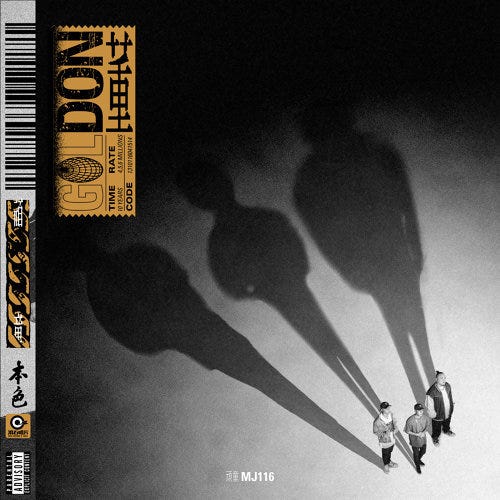
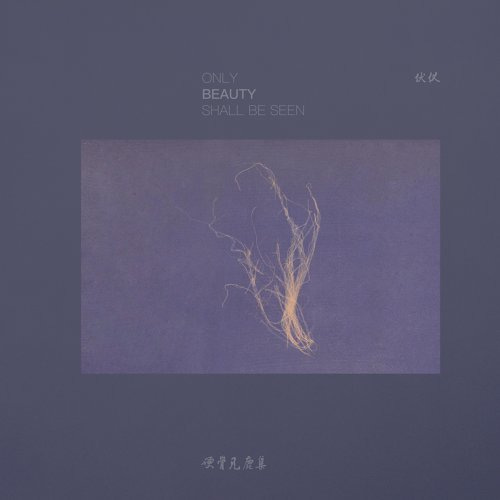

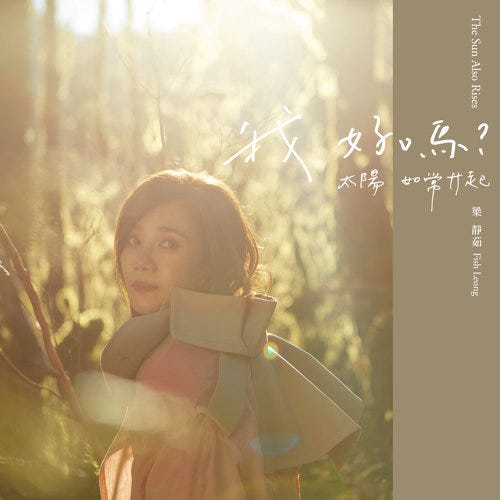
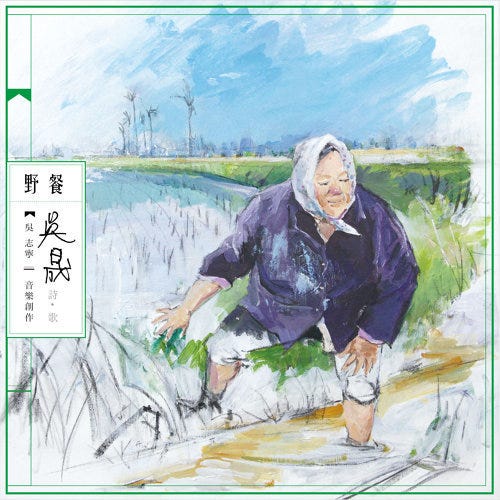
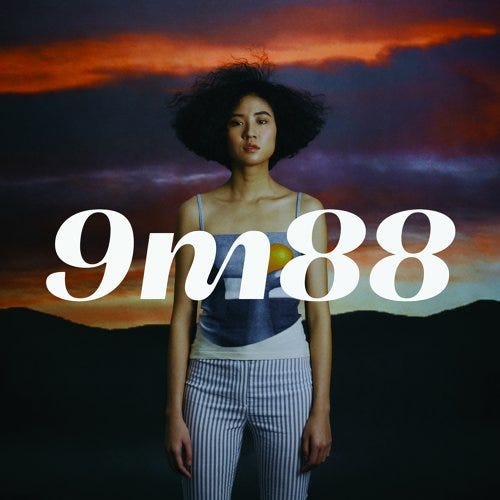
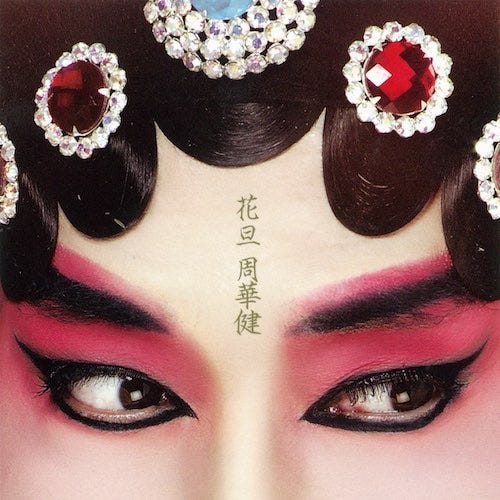

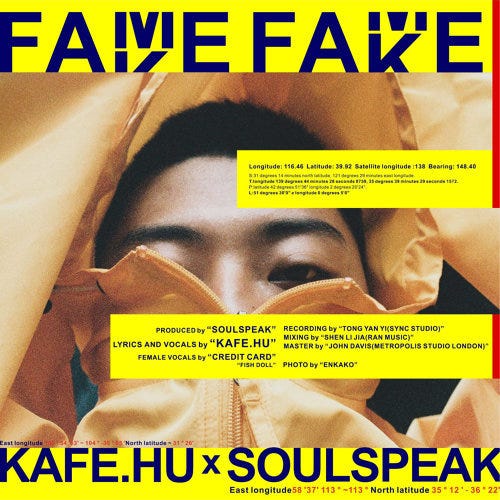
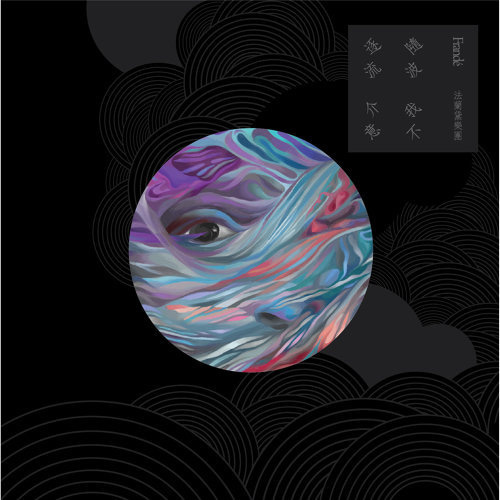


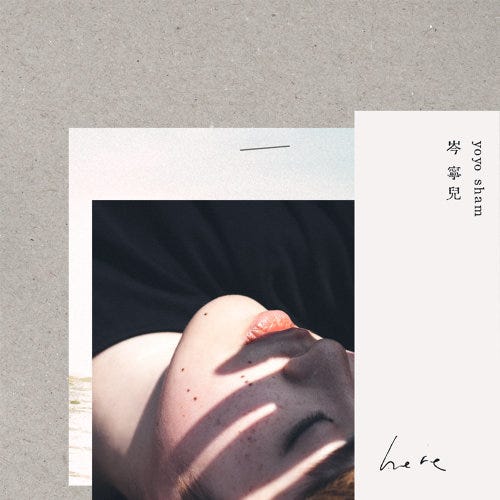
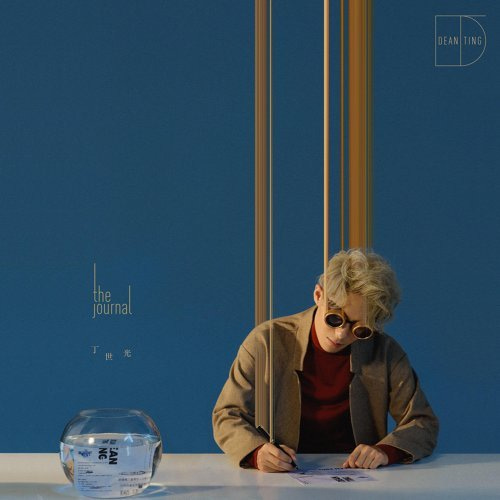
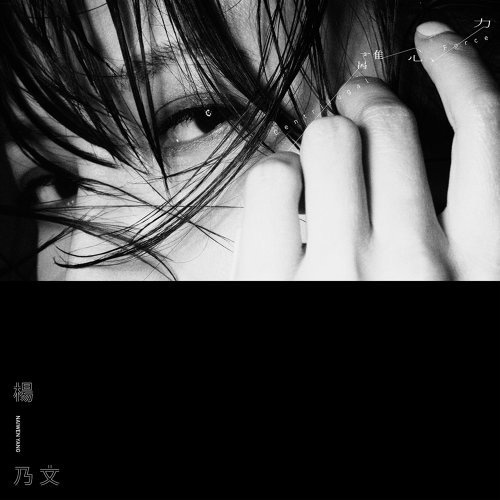



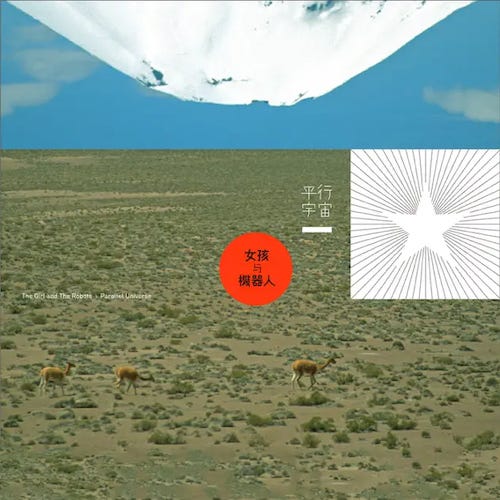
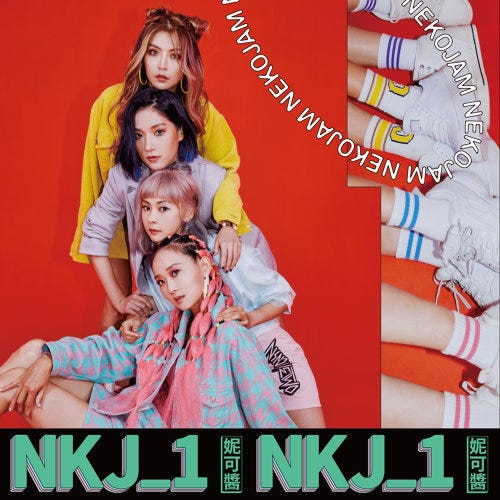
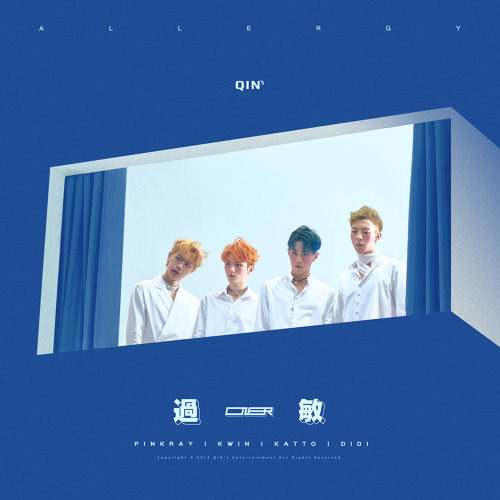




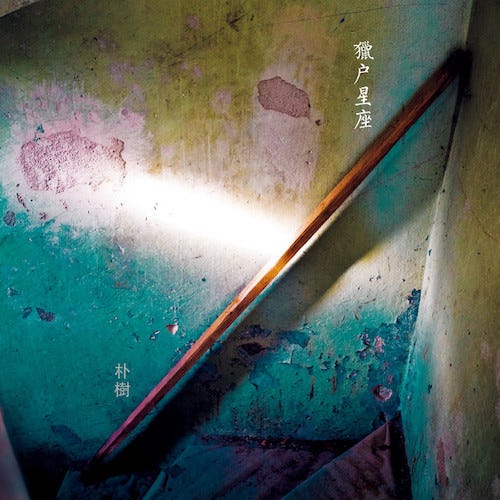
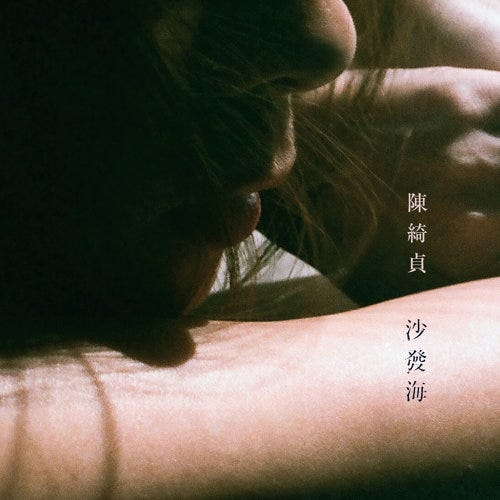
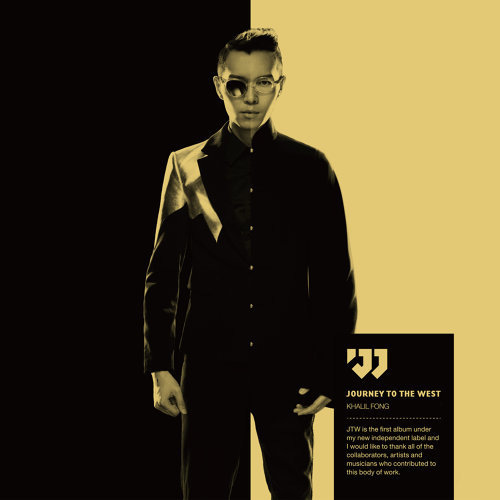
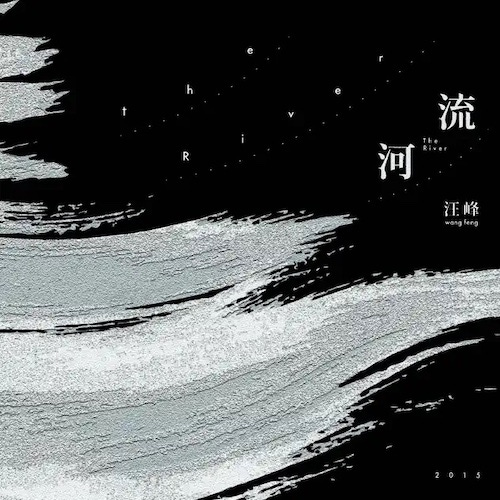
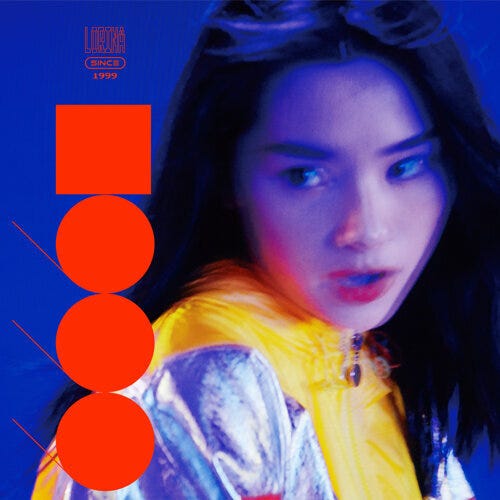
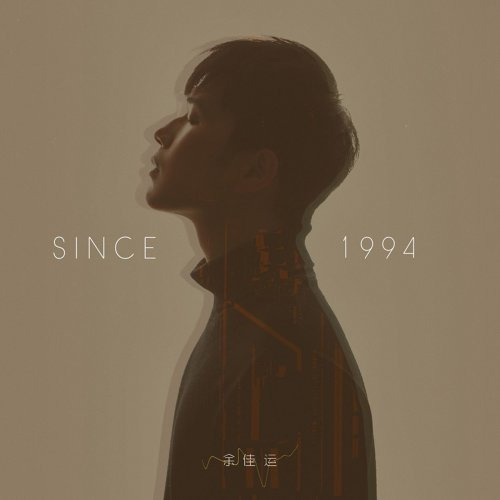

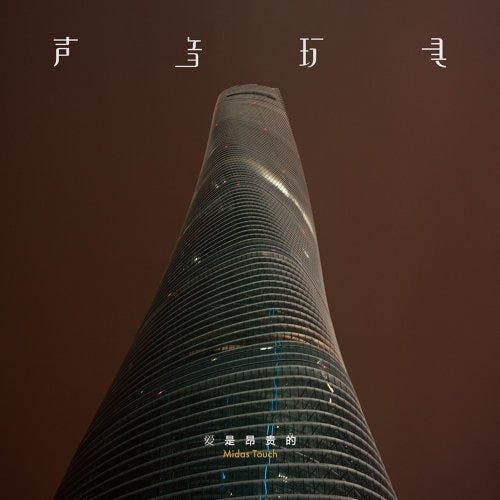
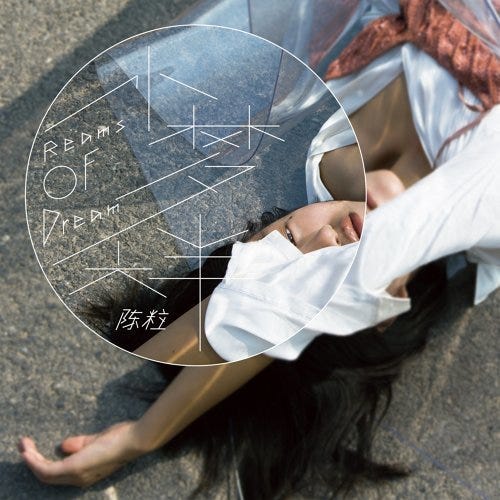
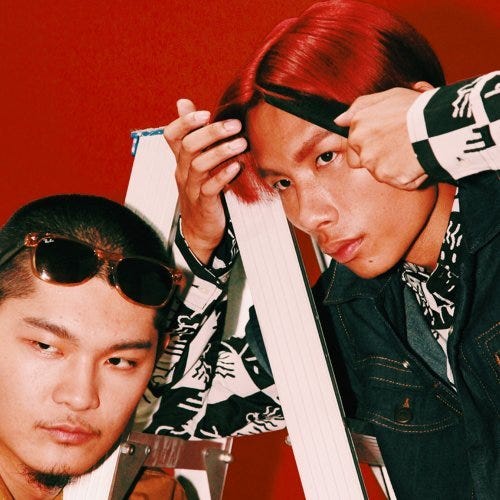
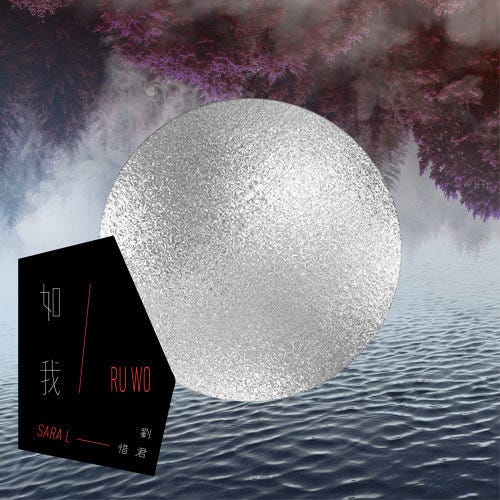

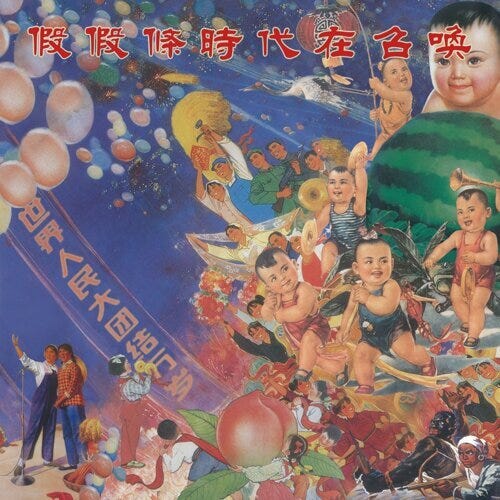

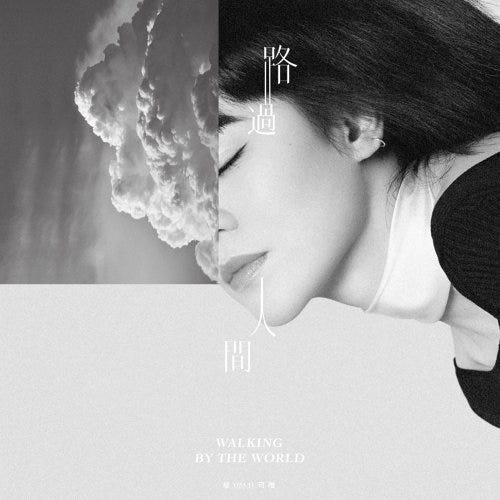
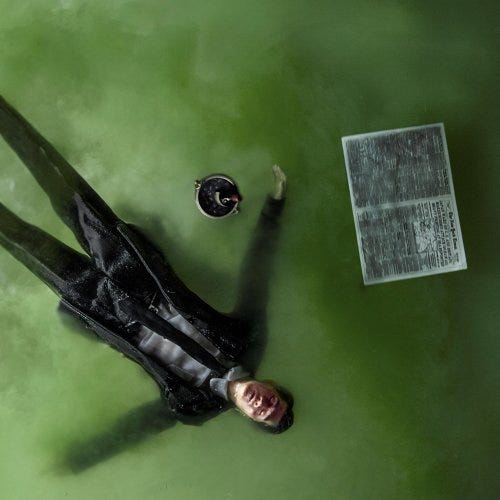



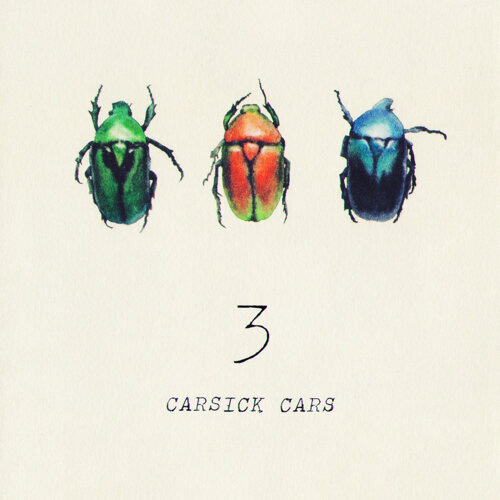
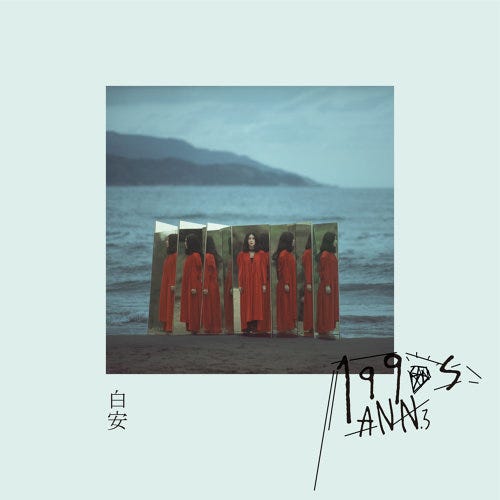
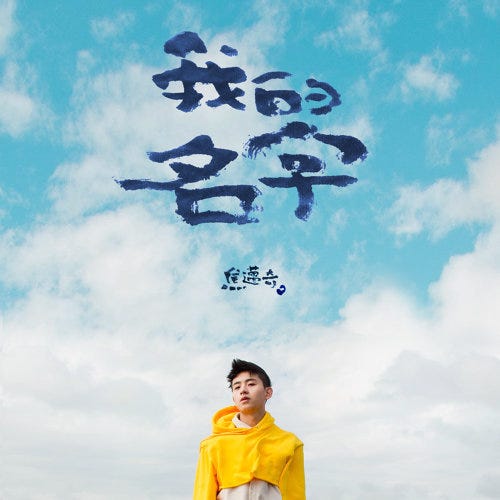
Am wondering the Entrance standard of Pitchfork right now, can anyone tell me that if someone could use the Google translate and GPT will be able to join in ?
How dare u to deliver Such a pathetic list of Mandopop?Are you shaming other artists ??